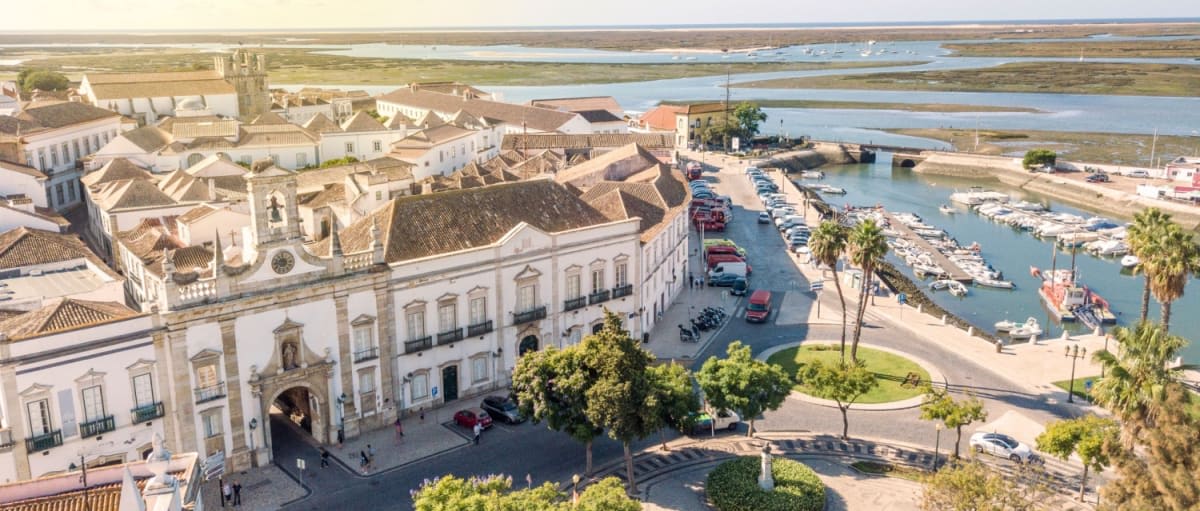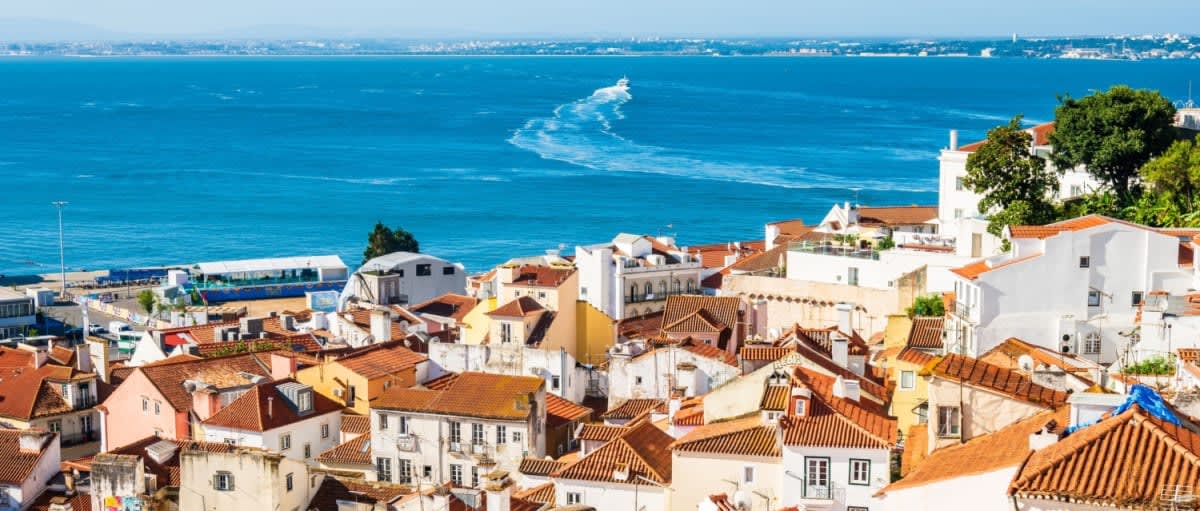Buying a home in Portugal is an exciting step, but if you plan to use local financing, securing the right mortgage is vital. As a foreign buyer, the process can feel unfamiliar – from language differences to local regulations. That’s where a qualified mortgage broker comes in. Let’s help you find your mortgage broker in Portugal.
By working with a broker who understands both the Portuguese market and the needs of international buyers, you can access better loan terms, cut through red tape and reduce the stress of securing finance. Below, we explain exactly how they help and how to choose the right one for your purchase in 2025.
Download the Portugal Buying Guide
Contents

Why use a mortgage broker in Portugal?
Buying with a mortgage in a foreign country is different to securing a loan at home. Portugal’s rules on affordability, deposit requirements and lender criteria can vary widely – especially for non-residents. Using a mortgage broker helps bridge this gap.
A good broker will act as your advocate throughout the borrowing process. They’ll explain the different mortgage products available, highlight the pros and cons of each, and handle communication with lenders on your behalf. This is particularly important if you’re unfamiliar with the Portuguese banking system.
In 2025, Portuguese mortgage rates are still competitive compared to many other European countries. But navigating fixed or variable interest options, euro-based repayments and the impact of your foreign income is complex. A broker simplifies this and reduces the risk of getting stuck or overpaying.
Most importantly, a broker makes sure that your mortgage fits the wider picture of your home purchase – from initial planning through to completion.
For a detailed breakdown of the buying process, claim your free copy of our Portugal buying guide:
Download the Portugal Buying Guide
What a mortgage broker does
A qualified mortgage broker in Portugal does far more than simply find you a loan. They act as a go-between, connecting buyers with banks and lenders and making sure the financial side of your property purchase runs smoothly.
Here’s what that looks like in practice:
- Assessing eligibility: Your broker will look at your income, debts, nationality and residence status to identify which lenders are most likely to approve your application.
- Comparing products: Portuguese banks don’t all offer the same terms. Brokers compare offers from mainstream and private lenders to find the most suitable match for your circumstances.
- Handling paperwork: Mortgage applications require documents ranging from notarised passports and translated bank statements to tax returns and employment letters. Brokers help prepare and submit these correctly.
- Negotiating rates: An experienced broker may be able to negotiate better terms based on your profile and their relationship with the lender.
- Liaising with other parties: Your broker will coordinate with your estate agent, lawyer and notary to ensure the financing aligns with the property transaction timeline.
Without professional support, delays and miscommunication are common. Using a mortgage broker reduces admin errors and ensures you apply to the lender most likely to say yes.
Finding the right broker in Portugal
Not all brokers offer the same level of service, so choosing one who understands the needs of international property buyers is key.
Start by checking that the broker is registered as a “Intermediário de Crédito” with the Bank of Portugal. This registration is mandatory and ensures that the broker operates under national regulations and upholds standards of professionalism and transparency. You can verify their credentials via the official website of the Banco de Portugal.
Ask brokers whether they have experience with clients from your home country, as rules around income assessment and documentation can differ from one nationality to another. If you’re a non-resident earning in foreign currency, this becomes even more important.
Tips for vetting a broker:
- Check independent reviews on Google or Trustpilot
- Speak to past clients or ask for testimonials
- Ensure they are transparent about how they are paid
- Confirm which lenders they work with – ideally, more than just one or two
Where possible, choose a bilingual broker who is based in or familiar with the area where you intend to buy. Local knowledge is helpful for understanding any regional lending differences or property rules.
Language and translation support
Applying for a mortgage in Portugal means dealing with documents in Portuguese. This includes everything from the loan offer to the notarial deed of purchase. If you’re not fluent, working with a broker who speaks both English and Portuguese is essential.
Language support isn’t just about reading paperwork. Your broker should be able to clearly explain key legal and financial terms, making sure you understand the implications of what you are signing. Financial vocabulary rarely translates well using online tools, so professional guidance is crucial.
Many brokers who specialise in helping international buyers offer translation as part of their service. Some may even attend notary appointments to ensure communication between all parties runs smoothly.
Proper language support also ensures your submitted documents meet the formatting and certification standards that Portuguese banks require – avoiding delays and rejected applications.
When to contact a broker
It’s best to speak to a mortgage broker before you start your property search in Portugal. Early contact helps you understand your borrowing power and how far your budget will stretch, especially when factoring in extra costs like taxes, legal fees and exchange rates.
Having a broker-arranged mortgage in principle also makes you a stronger buyer. Sellers and estate agents take your offer more seriously when you’ve already proven your financial readiness.
The best time to bring in a broker is after you’ve weighed up your purchase options and are ready to take your plans forward. The initial consultation is usually free and helps determine whether a loan is viable, and at what level. At this stage, your broker will guide you on how much deposit you’ll need – typically 20% to 30% for international buyers in Portugal – and what documentation you’ll need to prepare.
Early advice can also help you plan your currency conversion strategy, as this can significantly impact your final purchase cost.
Mortgage broker fees
Portuguese mortgage brokers usually charge a fee for their services, though the structure can vary. For foreign buyers, most brokers charge a commission, usually between 1% and 2% of the final loan amount. Others offer a fixed-fee package, especially for mortgages under a certain size.
This fee often includes:
- An initial affordability assessment
- Searching the market for suitable lenders
- Document preparation and submission
- Translation assistance
- Liaison with the estate agent, notary and legal experts throughout the transaction
Always ask for full transparency on when fees apply. Some brokers charge only once a mortgage offer is accepted, while others may ask for part-payment earlier. Check whether the broker earns referral fees from lenders too – reputable ones will always disclose this.
Though fees may seem like an extra cost initially, using a broker can often save you money overall by securing better loan conditions and avoiding errors or unsuitable mortgage products.
If you’re planning to buy in Portugal in 2025, a trusted mortgage broker can be one of your most valuable partners. To get started, speak with our experts to match with the right broker for your budget and location. Book a free consultation here.
A mortgage is just one part of the home buying process in Portugal – but it’s a big one. Whether you’re still deciding where to buy property in Portugal or ready to learn how to buy property in Portugal from start to finish, our expert guidance is here to help. With the right mortgage broker and local support team, your dream of owning a home in Portugal can become a smooth, stress-free reality.
Frequently asked questions about mortgage brokers in Portugal
While not mandatory, using a mortgage broker simplifies the process, especially for foreign buyers. They compare rates, handle paperwork and liaise with banks on your behalf.
Fees usually range from 1% to 2% of the loan amount, though some brokers offer fixed-price packages. Always ask for a clear fee breakdown before committing.
Yes, many Portuguese banks offer mortgages to international buyers, typically covering 70–80% of the purchase price. Lenders will assess income, residency status and creditworthiness.
Ideally, before starting your property search. This helps you understand your budget and get pre-approval, which strengthens your position when making offers.
Yes, most experienced brokers offer translation support and explain key terms in English, ensuring you fully understand the mortgage agreement and documents.









